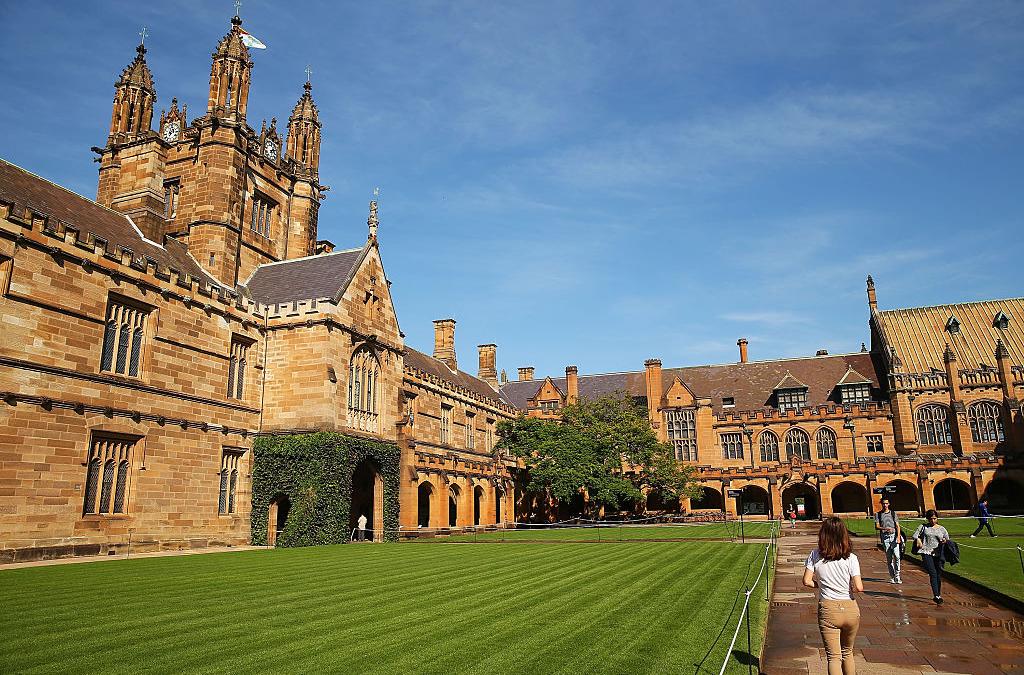
The Senate debated a bill today which lowers the salary threshold at which university grads are expected to start to repay their HECS-HELP debts, from about $56K to $45K, as Sydney Morning Herald reports.
The changes – affecting current students and everyone one of us who still has a student loan – are set to kick off this Sunday, July 1 if they pass the senate by Thursday as expected.
In real terms that means grads earning just $730 a week after tax – that’s barely above the minimum wage of $694.90 – will be expected to pay back at least 1 per cent of their student debt annually. Couple that with the steep cost of living somewhere like Sydney or Melbourne, where your weekly rent in a dilapidated sharehouse is somewhere between $250 and $400, plus the cost of bills n’ feeding yourself, and, we’re…we’re all screwed.
A lifetime cap on loans of $104,440 (or $150K for veterinary and medical students) will also be implemented in 2020 – although you’ll be able to get a new one once your earlier debt is paid down. So that’s fine, although even just thinking of paying back $104,440 on a $45K salary is making my head swim rn.
The percentage at which the debt is repaid will also go up in line with wage increases. rising to 10 per cent once you earn $132K (lol, ‘sif that’ll ever happen: the national median wage for f/t workers is only $66K, according to the ABS).
The ABC notes that the bill has the support of two senators apiece from the Centre Alliance and One Nation, and from crossbench senators, Australian Conservatives‘ Cory Bernardi, the Katter’s Australian Party‘s Fraser Anning, independent senator Tim Storer and Liberal Democrat David Leyonhjelm. The Lib-Nat Coalition needs all eight of ’em to ram the bill through. One Nation even want to lower the threshold to $30K, which is actually less than a minimum wage salary, and works out as hitting people on just $577 a week.
Labor and the Greens oppose the bill, while Derryn Hinch of his own Justice Party, reckons the threshold should be lowered, but not by that much, suggesting a threshold of $50K instead.
Northern Territory Labor Senator Malarndirri McCarthy called the legislation “unfair“, and pointed out that it would deter people who are less well off from studying: “We know that higher student debt is a genuine barrier to study for disadvantaged and low SES students.”
Greens leader Richard Di Natale slammed the bill and its affect on young people:
If you’re a young person and you’re taking home 700 bucks a week, let’s face it, it’s not a goldmine. Once you’ve ended up paying for your rent, your energy bills, your grocery, your shopping needs, your transport needs, there’s very little left to spend on anything else.
There is no doubt that young people are getting royally screwed over by this generation of [Liberal-National] politicians.
The reduction is expected to generate $245.2mill in revenue for the government, although it is a few grand shy of their original proposition, to reduce the threshold to 42K.
The funnest fact of all? That this generation of pollies were almost certainly the beneficiaries of Whitlam‘s policy to make tertiary education F.R.E.E. and thus accessible to working- and middle-class Aussies for the first time, through the years 1974 to 1989.
Cool beans.



